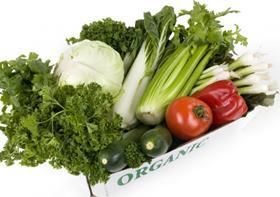
The Soil Association has asked government for commitments that organic exports and funding can continue after Brexit amid growing fears that UK organic certification will cease to be recognised by the EU.
A no-deal Brexit could “significantly dent” a sector with growing export potential, the organic certification body warned in open letter sent to Defra secretary Michael Gove last week.
The letter follows the NFU Conference last week, where it was confirmed that recognition of UK organic certification by the EU is expected to cease overnight in the UK leaves the EU without a deal, making exports impossible.
“This prospect is already having a serious impact on UK exporters as customers are looking to source supplies elsewhere to guarantee continuity,” wrote the Soil Association’s chief executive Helen Browning in the letter, which was also sent to business secretary Greg Clark and international trade secretary Liam Fox.
“In the event of no-deal, there is the real prospect of a prolonged period during which organic exports to the EU could become impossible. It will be hard to win back the lost custom, and some UK businesses are already incurring costs as they take mitigating measures such as stockpiling materials.”
The Soil Association fears that as well as presenting a serious economic challenge to organic producers, it could harm the organic sector’s rising export potential – sales of organic produce increased by 5.3 per cent in 2018 to a total of £2.33 billion.
Browning voiced her opposition to the suggestion that one way of navigating the situation might be to market organic products as if they were conventionally produced, and therefore price them accordingly.
She called such a move “frankly unacceptable and counterproductive to the long-term shift you are seeking to make”, referring to Gove’s commitments to protecting the environment since becoming Defra secretary in June 2017.
Among other things, Gove has backed a total ban on neonicotinoids and proposed replacing EU farming subsidieswith new incentives torewardlandowners for environmentally-friendly practices after Brexit.
In her letter, Browning called on Gove to make the following commitments:“Firstly, to explore every avenue to ensure that there is no break in the ability of our organic producers and suppliers to export their products as they do now into the EU and world markets.
“Secondly, because this crisis is politically driven and cannot reasonably be regarded as a normal business challenge, to give reassurance that funding will be ringfenced to deal with the fallout and that compensation mechanisms will be developed to enable otherwise viable businesses to bridge to the time when this issue is resolved.
“Thirdly, to ensure that agri-environment applications and claims are expedited to ensure the cash flow impacts for organic farmers of a no deal is minimised, and if necessary, review rates in order that those farmers are being properly rewarded for the public goods they provide. This will provide a degree of short-term cushioning from the economic impacts of an export crisis.”






No comments yet